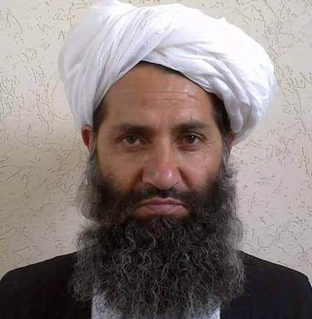By Khalid Khan
Peshawar, Pakistan: Rifts within Afghanistan’s interim government have escalated into a full-blown crisis, as tensions between the two dominant Taliban factions—the Kandahari group led by Supreme Leader Mullah Hibatullah Akhundzada and the Haqqani Network—deepen, suggest reports arriving from Kabul.
Unconfirmed reports suggested that fearing internal reprisals, Supreme Leader Haibatullah Akhundzada has confined himself to Kandahar, where his security has been significantly tightened.
Amid the chaos, several senior Taliban ministers, including Haqqani and Sher Mohammad Abbas Stanikzai, are believed to have fled to undisclosed places although insiders suggest that UAE, Saudi Arabia, or Qatar could be their final destinations.
Their disappearance raised further doubts about the stability of the interim administration. In a major power shift, Kabul’s security and several key administrative controls have been stripped from the Haqqanis, signaling growing distrust within the regime.
“Fearing internal reprisals, Haibatullah Akhundzada has confined himself to Kandahar, where his security has been significantly tightened. Meanwhile, efforts led by Mullah Omar’s son, Mullah Yaqoob, to mediate between the two rival factions have so far failed. Reports suggest that Sirajuddin Haqqani, the influential Haqqani Network leader, has refused to engage in any reconciliation efforts”, claim journalists of Kabul who are following the development.

With neither side willing to back down, fears are mounting that Afghanistan could descend into internal warfare. Diplomatic sources indicate that multiple international missions have restricted their movements, bracing for the possibility of violent clashes between the rival Taliban factions. The crisis has also caused fractures within the banned Tehrik-i-Taliban Pakistan, with some commanders aligning themselves with the Kandahari faction while the majority remain loyal to the Haqqanis. The Haqqani Network continues to wield significant influence in Afghan provinces bordering Pakistan, keeping it strategically aligned with TTP elements operating in the region.
Concerns are growing that the escalating power struggle could create an opportunity for ISIS-K to strengthen its foothold in Afghanistan. In an attempt to prevent further fragmentation, al-Qaeda operatives are reportedly involved in mediation efforts, fearing that internal Taliban infighting could be exploited by Pakistan and the United States to weaken the group’s overall control.
The crisis has drawn a sharp reaction from Pakistan, which has raised the issue at the United Nations, demanding that Afghanistan’s interim government be held accountable for preventing the use of Afghan soil in cross-border attacks. Islamabad has presented evidence of Afghan Taliban involvement in such incidents and has warned that it reserves the right to take direct action if the situation persists. Pressure on the Taliban administration is mounting, both from within its ranks and from the international community.
As the power struggle deepens, Afghanistan stands at a crossroads, with the looming threat of internal warfare pushing the country further into uncertainty. The Taliban’s once-unified front is rapidly unraveling, and the path ahead remains dangerously unpredictable.
